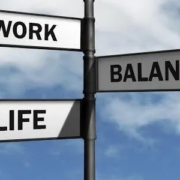Why Employees Are Better Off Without a Union: The Truth About Union Dues and Fees
Union organizers promise higher wages, better benefits, and stronger job security, but they often leave out key details about the financial burden placed on employees through union dues and fees. Many workers are led to believe that union membership guarantees better working conditions, yet they are not fully informed about what they will be required to pay and what they actually receive in return. The reality is that unions operate like businesses, and they depend on dues and fees collected from employees to sustain themselves. These payments, deducted directly from paychecks, can amount to thousands of dollars per year without necessarily improving wages or working conditions in a meaningful way.
Union dues typically range from one to two percent of an employee’s gross salary. Over time, this adds up to a significant sum, especially for workers who are not seeing direct benefits from union representation. Some unions also charge initiation fees that must be paid before a worker is officially represented. Additionally, many unions impose assessments and fines, particularly if members do not participate in certain activities or comply with union rules. Unlike voluntary contributions to retirement or health savings accounts, union dues are deducted automatically, often without any transparent breakdown of how the money is spent.
A major concern for employees is that a large portion of their dues does not go toward direct workplace improvements. Instead, unions allocate millions of dollars to political activities, lobbying, and administrative costs. While employees may assume their money is funding contract negotiations, it is often used to support political candidates or causes that may not align with their personal views. This can create frustration, especially when union leadership prioritizes external political agendas over addressing workers’ immediate concerns.
Another issue with union dues is the lack of accountability in how the money is managed. Unlike corporate expenses, which are subject to financial disclosures and shareholder oversight, unions are not required to provide a transparent breakdown of their expenditures. Employees who are dissatisfied with how their dues are used have little recourse. In some cases, union leadership has been exposed for misusing funds, leaving members powerless to reclaim their money or demand meaningful reforms.
Union fees can also impact job flexibility. Many contracts negotiated by unions include provisions that limit an employer’s ability to reward employees based on merit. This means that high-performing workers may not see the financial recognition they deserve because pay scales are set based on union agreements rather than individual performance. Promotions and raises often follow rigid structures, making it difficult for employees to advance on their own terms. For workers who take pride in their contributions and seek to increase their earnings based on skill and effort, union membership can be a significant obstacle.
Another financial burden imposed by unions is the requirement to participate in strikes. While unions often present strikes as a way to demand better conditions, employees who go on strike typically do not receive pay during that period. Union leadership may provide small strike benefits, but these payments are rarely enough to replace lost wages. Workers who cannot afford to go without a paycheck may feel pressured to participate, even if they disagree with the strike. In some cases, employees who choose to continue working risk being ostracized or fined by the union.
For many employees, a union-free workplace offers more control over their earnings and professional growth. Companies that maintain direct communication with their workforce can address concerns more effectively without the added financial burden of dues and fees. Employers who prioritize fair pay and open dialogue create a more dynamic environment where employees can negotiate raises and benefits based on performance rather than union rules. By avoiding union membership, employees retain the ability to manage their own careers without being subject to deductions that may not provide them with meaningful returns.
Union FAQs
What are union dues, and how much do they typically cost employees?
Union dues are payments deducted from employees’ paychecks to fund union activities, negotiations, and administrative expenses. These fees usually range from one to two percent of an employee’s gross salary but can be higher depending on the union.
Are union dues mandatory for all employees in a unionized workplace?
In some states, employees in unionized workplaces must either join the union or pay agency fees, which are nearly as high as dues. However, in right-to-work states, employees cannot be forced to pay union fees as a condition of employment.
Do union dues guarantee higher wages and better benefits?
Not necessarily. While unions negotiate on behalf of employees, there is no guarantee that the wages and benefits they secure will be higher than those offered by non-union employers. Some non-union companies provide competitive pay and benefits without requiring employees to pay dues.
How do unions use the money collected from dues?
Union dues fund contract negotiations, administrative expenses, legal fees, and political activities. A large portion of these funds is allocated to lobbying and supporting political campaigns rather than directly benefiting members.
Can employees opt out of paying union dues?
Employees in right-to-work states can opt out of paying union dues and still keep their jobs. In other states, employees may be required to pay dues or agency fees unless they qualify for a specific exemption.
Do unions fine employees for not following union rules?
Some unions impose fines on members who do not participate in certain activities, such as strikes or mandatory meetings. Employees who refuse to comply with union decisions may face financial penalties or even expulsion from the union.
Does union membership limit job advancement opportunities?
Union contracts often establish fixed pay scales and promotion policies that do not take individual performance into account. This can make it harder for employees to earn raises or promotions based on their contributions and skills.
Are unionized workers required to participate in strikes?
While employees are not legally required to go on strike, unions may pressure members to participate. Those who choose to work during a strike may face union-imposed penalties or social ostracization from their coworkers.
Call Labor Advisors For A Free Consultation
Business owners who want to maintain a strong, direct relationship with their employees can take proactive steps to ensure their workplace remains union-free. With the right approach, companies can build trust, provide competitive benefits, and address employee concerns without the need for a third party. If you are looking for guidance on fostering a positive work environment and avoiding union-related financial burdens, call 1-833-4-LABOR-4 (1-833-452-2674) to speak with a labor consultant today.









